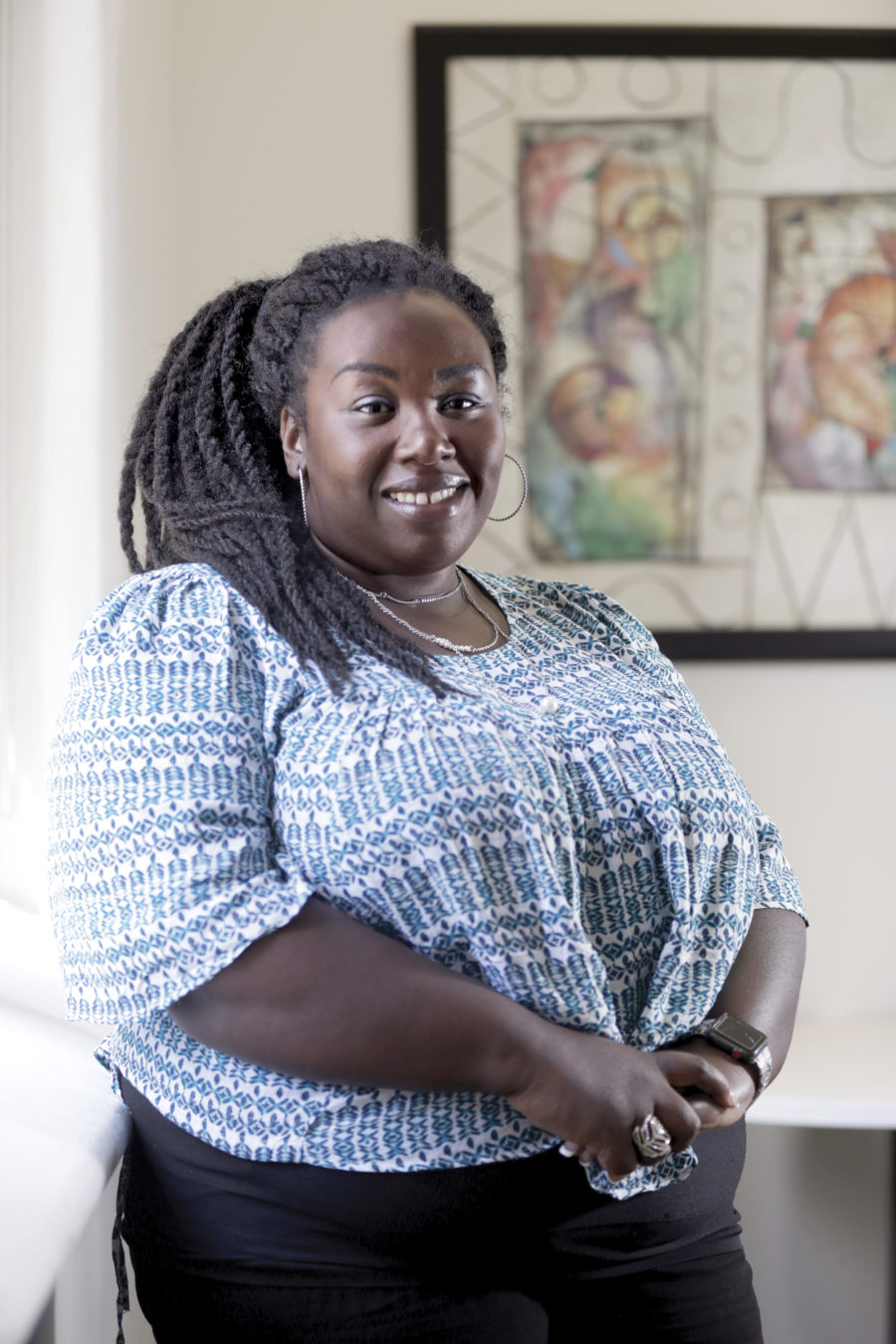Marian Stuckey
In 2015, Marian Stuckey and a group of social workers with Columbus Public Health were called to the scene of a crime in the Hilltop neighborhood of Columbus. At the time, Stuckey said she was “immersed” in her work, moving on from a position with the Franklin County Department of Job and Family Services that involved sanctioning of benefits. After her first job, she was still learning that “you’re not getting the full picture” when focused on “why people aren’t doing what we wanted them to do,” she said.
She was now interacting with people who were “severely mentally ill” and was seeing people on a more personal level than she had experienced before. “Those years were really fundamental to my career, in that I really got to see what it’s like,” she said. “It really changed how I viewed the (social-work) profession.”
But when she and other social workers responded to the Hilltop scene in 2015, even she wasn’t prepared for what she encountered. A triple homicide had left the community devastated. The task for Stuckey and her coworkers was to walk a two-block radius around the crime scene with Columbus Division of Police personnel to check in door-to-door with residents in the midst of the tragedy.
“There was a lot of grief, a lot of trauma,” she said. “It was a really tough time for the community, in addition to all the things they were facing on a regular basis. … That all came together and it was just overwhelming.”
From the trauma of that event, Columbus Public Health’s Community, Action, Resilience and Empowerment Coalition was born.
The coalition was founded in 2016 and led by Stuckey, now the director of neighborhood social work with Columbus Public Health. The goal was to provide the kind of in-person, individualized response to crises that Stuckey and others experienced in the aftermath of the West Side triple homicide. Stuckey, now 33 and a Delaware resident, calls that event the “backdrop” for the CARE Coalition, which has served the Hilltop and Linden neighborhoods as pilot communities. The goal, she said, is to create “trauma-informed communities” that understand the effects of trauma and can recognize it when it happens.
“We pride ourselves on looking at trauma as not an individual basis, but on a community basis,” she said.
The coalition is still largely volunteer-based, with a paid staff of just four. That volunteer group has grown rapidly over the years, increasing from around 10 responders to the Hilltop murder to a network of around 300 today.
“It’s amazing how generous people are with their time,” Stuckey said.
But those who know her and her work say Stuckey deserves plenty of recognition for the group she’s put together. Emily Buster is a development officer with Ethiopian Tewahedo Social Services, a nonprofit organization that serves immigrants and refugees in Central Ohio. She served on the steering committee that created the CARE Coalition. She’s known Stuckey for years, and calls her “a very, very strong person who’s not afraid to get her hands dirty.”
She said her work in being inclusive and removing barriers for certain communities and groups of people has been admirable.
“She has just done so much,” Buster said. “She’s gone above and beyond, and she’s extremely passionate about bringing information about trauma-informed care to Columbus.”
Stuckey knows that her work is nowhere near complete, and she hopes to expand the coalition’s services to other underserved communities, she said.
“We know trauma happens all around the city,” she said. “We want to be in a place where we can address that and acknowledge that and look at every unique group and see how best to support them.”
